In the modern world of high speed and all too typical worry and anxiety, it is critical to discover methods for boosting your vitality and preserving your sense of well-being. Conscious breathing is a potent method that can assist you in reaching your goal. In this post, we’ll look at the many advantages of mindful breathing and how it can improve your life. Let’s explore the practice of mindful breathing and learn how to become a healthier, more energetic version of ourselves.
Contents
- 1 The Science of Conscious Breathing
- 2 Benefits of Conscious Breathing
- 3 How to Practice Conscious Breathing
- 3.1 Mindful Breathing Exercises
- 3.2 Incorporating Breathing into Daily Life
- 3.3 FAQs
- 3.4 What is conscious breathing?
- 3.5 How can conscious breathing reduce stress?
- 3.6 Can breathing consciously improve concentration?
- 3.7 Is conscious breathing suitable for everyone?
- 3.8 How long should I practice conscious breathing to see results?
- 4 Conclusion
The Science of Conscious Breathing
The Science of Breathing consciously revolves around understanding our breath’s profound impact on our physical and mental well-being. While breathing is an automatic bodily function, conscious control can trigger essential physiological responses. According to studies, we can induce the parasympathetic nervous system, which reduces stress and encourages relaxation, by practicing conscious breathing. A series of actions are involved in this process, such as lowered blood pressure, slowed heart rate, and improved tissue oxygenation. The science behind this relaxing method provides compelling evidence that our breath is a vital function and a powerful tool for nurturing our health and vitality.
Understanding the Basics
Before we dive into the deeper aspects of conscious breathing, let’s first grasp the fundamental concepts. Breathing is an automatic process that we often take for granted. However, consciously controlling our breath can influence our mental and physical states.
The Mind-Body Connection
Conscious breathing has been demonstrated to activate the parasympathetic nervous system, which lowers tension and increases relaxation. When we slow down our breath and focus on it, our minds become calmer, and our bodies follow suit.
Benefits of Conscious Breathing
The Benefits of this technique are manifold and far-reaching. One of the most immediate advantages is stress reduction. By deliberately regulating our breath, we can lower cortisol levels, alleviate anxiety, and attain a state of tranquility, even amidst life’s pressures. Moreover, it infuses our bodies with oxygen, fostering increased vitality and energy.
This revitalization at the cellular level enhances physical and mental endurance. The exercise also improves mental clarity and attention, which makes it a useful tool for jobs requiring concentration, like school or work. In essence, the benefits of conscious breathing extend beyond mere relaxation, offering a holistic approach to nurturing our overall well-being and quality of life.
Stress Reduction
Reducing stress is among the benefits of aware breathing that happens most quickly. By regulating your breath, you can lower cortisol levels, reduce anxiety, and achieve a state of tranquility even amid chaos.
Increased Energy
It gives your body a surge of oxygen, increasing vitality and energy. It revitalizes your cells and boosts your overall physical and mental endurance.
Enhanced Focus and Clarity
Practicing this manner of breathing can sharpen your focus and improve mental clarity. This can be especially beneficial for work or study, allowing you to perform at your best.
How to Practice Conscious Breathing
Practicing this method involves a range of mindful techniques aimed at harnessing the power of your breath for improved well-being. Begin with simple exercises like the 4-7-8 technique, which entails inhaling for four seconds, holding the breath for seven, and exhaling for eight. Another effective method is the box breathing technique, where you inhale, hold, exhale, and hold again, each for a count of four. These exercises can be done virtually anywhere, providing immediate relaxation and heightened awareness. Find times during the day to stop and pay attention to your breath to integrate conscious breathing into your everyday routine. Whether during your morning meditation, a brief break at work, or even while commuting, these moments of mindfulness can help you experience the profound benefits of this breathing technique and foster a greater sense of vitality and peace in your everyday existence.
Mindful Breathing Exercises
Mindful Breathing Exercises encompass a variety of techniques that enable individuals to connect deeply with their breath and experience its therapeutic benefits. For instance, the 4-7-8 technique calls for four seconds of inhalation, seven seconds of breath retention, and eight seconds of exhalation. This simple yet effective practice immediately induces relaxation and heightened awareness. Another method, known as box breathing, encourages individuals to inhale, hold, exhale, and hold again, each for a count of four.
These exercises can be practiced virtually anywhere, making them accessible tools for reducing stress, enhancing mental clarity, and promoting well-being in our fast-paced lives. Including mindful breathing techniques in your everyday routine can be a game-changer for a more tranquil and balanced life. You can also enjoy the spiritual and therapeutic benefits of Reiki Energy Healing with Yrma Wilson.
Incorporating Breathing into Daily Life
Learn how to integrate this relaxing method of breathing into your daily routine. Whether during your morning meditation or a quick pause during a hectic day, finding moments to breathe consciously can make a significant difference.
FAQs
It is a practice where you deliberately focus on your breath, regulating its pace and depth to achieve various mental and physical benefits.
Breathing consciously reduces stress hormones and promotes relaxation by triggering the parasympathetic nervous system.
Yes, deliberate breathing is useful for raising productivity and focus since it can improve mental clarity and focus.
This technique is generally safe for the majority of people. If you have any particular medical conditions, see a healthcare provider before starting breathing exercises.
The duration can vary from person to person. Some people experience immediate benefits, while others may need consistent practice over weeks or months to notice significant changes in their well-being.
Conclusion
In conclusion, conscious breathing is not merely a relaxation technique but a powerful tool for regaining control over your emotional and physical well-being in the modern world. Its accessibility and simplicity make it a beneficial routine you can easily include daily. By reducing stress, increasing vitality, and sharpening mental focus, consciously breathing offers the potential for a healthier and more balanced existence. Make an appointment with Yrma Wilson to embrace the power of conscious breathing and let it guide you toward a life filled with vitality, serenity, and overall well-being.



